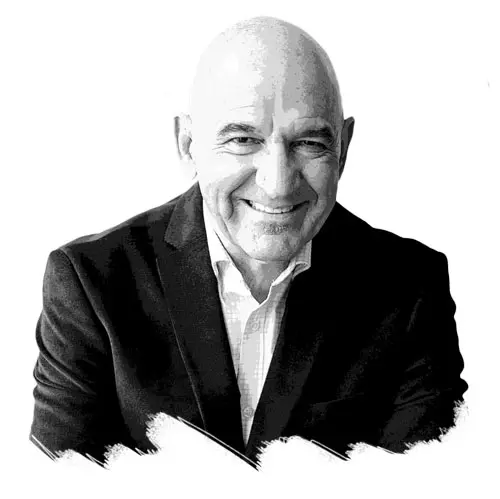
By Adrienne Perron
From our September 2021 issue
In 1991, six years after Reza Jalali came to Maine from his native Iran, Pleasant Mountain became his temple. At the time, Kurdish refugees displaced during the Persian Gulf War were fleeing Iraq through the Zagros Mountains, and Jalali, a Kurdish refugee himself, was devastated by the news footage. Jalali hiked Pleasant Mountain over and over again, in solidarity. It became a place for him to weep and pray for refugees, whom he thought of as family.
Today, the western Maine mountain is still sacred to Jalali, an author and former university administrator who became executive director of the Greater Portland Immigrant Welcome Center last December. Among other things, the organization provides resources to help immigrants start and expand businesses, learn English, and become more involved in American civic life. “It was quite a natural fit,” he says. “Because of my own life experience, it felt like I was coming back to where I could actually be part of an organization that elevates the community of new Mainers.”
Reza Jalali fell in love with Maine’s landscape instantly, but it didn’t ease the culture shock of arriving in a very white state with an unfamiliar name and an accent. Without references or a bank account, he had a hard time finding work and housing. Now, his career is centered around making those resources more easily available to those who need them.
In September, Islandport Press publishes Dear Maine: The Trials and Triumphs of Maine’s 21st Century Immigrants, which Jalali co-authored with Morgan Rielly, a state representative from Westbrook. A series of profiles (paired with portraits by Portland photographer Lilit Danielyan, who came to Maine from Kazakhstan), the book aims to put a human face on what Jalali feels are Maine’s all-too-invisible immigrant communities. Someday, he hopes to see an immigrant welcome center, like Portland’s, in every corner of the state.
“I am grateful for immigrants coming to Maine. I want to hug them and thank them for choosing us when they could have gone elsewhere,” he says. “We need them here more than they need us. They are young, they want to raise families, they are highly educated and motivated, and they are here to heal, repair, build, and add to this rich symphony we call America.”




